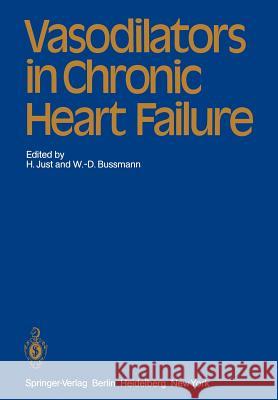Vasodilators in Chronic Heart Failure » książka
Vasodilators in Chronic Heart Failure
ISBN-13: 9783642686078 / Angielski / Miękka / 2011 / 236 str.
The therapeutic principle of pharmacological vasodilation in congestive heart failure is based upon established physiological and pathophysiological mechanisms and has been proved to be effective and useful. In acute heart failure this method of treatment has assumed importance as the first measure to be taken. In chronic heart failure a sizeable increase in cardiac output can be achieved with a number of vasodilating drugs. This effect can be maintained over several weeks or months. The adjustments of the heart and the circulation to the arteriolar and/or venous unloading effect of vasodilatation in the situation of acute and chronic heart failure are well understood. However, long-term adaptations of the organism to the vasodilat- ing intervention have not yet fully been described. In many instances of chronic ad- ministration of vasodilators, attenuation of the response has been observed. The mech- anisms responsible have not been fully elucidated, nor has there been a satisfactory demonstration of improved exercise performance or of life expectancy under this mode of treatment in the patient with chronic heart failure. In an attempt better to understand the pathophysiological mechanisms of chronic congestive heart failure as they apply to long-term treatment with vasodilators, the working group on vasodilator therapy of the Deutsche Gesellschaft fUr Herz- und Kreis- laufforschung has assembled a group of physiologists, pharmacologists, and clinicians. The Proceedings of their Symposium held in Hinterzarten in June 1981 are presented here.











